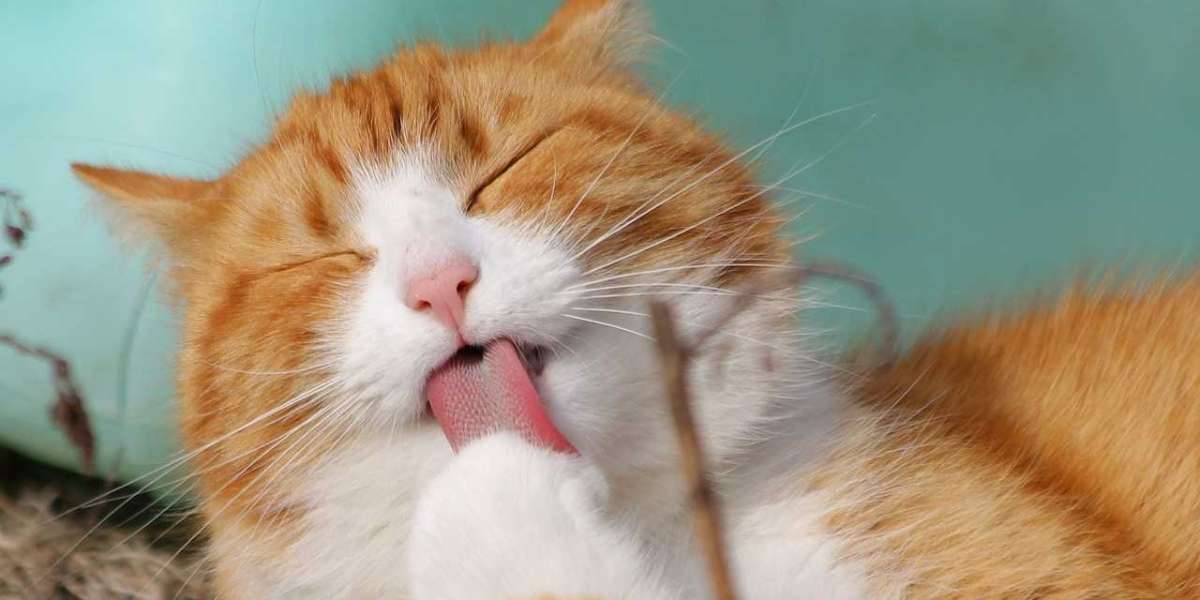Maintaining your cat’s hygiene is essential not only for their health but also for a clean, odor-free home. From grooming to litter maintenance, CAT HYGIENE SUPPLIES play a crucial role in the overall well-being of your feline friend. In this guide, we’ll explore the essential hygiene supplies every cat owner should have, how to use them effectively, and why maintaining a regular hygiene routine is beneficial for both you and your pet.
1. Why Cat Hygiene is Important
Cats are naturally clean animals, spending a significant amount of their time grooming. However, they still need assistance to maintain certain aspects of their hygiene, such as ear cleaning, dental care, and litter box maintenance. Proper hygiene helps prevent health issues such as infections, parasites, and dental disease, while also keeping your home clean and comfortable. Here’s why cat hygiene is so important:
Promotes Health: Regular grooming and cleaning reduce the risk of infections and health issues.Prevents Parasites: Keeping your cat clean helps prevent fleas, ticks, and other parasites.Minimizes Odor: Good hygiene reduces litter box and general pet odor, making your home more pleasant.Enhances Bonding: Grooming can be a bonding experience that strengthens your relationship with your cat.2. Essential Cat Hygiene Supplies
Every cat owner should have certain hygiene supplies to care for their feline’s health and cleanliness. Here are the must-have items:
Litter Boxes and Liners: A quality litter box is essential for a cat’s hygiene. Liners help keep the box cleaner and make it easier to change the litter.Cat Litter: Choosing the right litter is crucial. Options include clumping, non-clumping, silica, and biodegradable litters.Litter Scoop and Disposal Bags: A scoop is necessary for cleaning out the litter box daily, and disposal bags help manage waste efficiently.Cat Wipes: Safe, non-toxic wipes are perfect for quick clean-ups, especially after meals or playtime.Dental Care Supplies: A toothbrush and cat-friendly toothpaste help maintain your cat’s oral health and prevent dental issues.Ear Cleaner: Keeping your cat’s ears clean helps prevent infections and mites.Nail Clippers: Regular nail trimming reduces the risk of scratching-related injuries and keeps claws healthy.Cat Shampoo and Conditioner: Occasionally, a gentle bath may be needed, especially for long-haired cats.Brush or Comb: Brushing removes loose fur, reduces hairballs, and keeps your cat’s coat shiny and clean.
Each of these items serves a specific purpose in maintaining your cat’s hygiene and contributes to their overall health and well-being.
3. How to Choose the Right Cat Litter
One of the most important aspects of cat hygiene is the litter box. Choosing the right litter can make a big difference in your cat’s comfort and your home’s cleanliness. Here are some common types of cat litter:
Clumping Litter: Clumping litter is easy to clean as it forms clumps around waste, making it easier to scoop.Non-Clumping Litter: Non-clumping options are often cheaper and can control odor well but require more frequent changes.Silica Litter: Silica-based litter is highly absorbent and controls odor well. It’s also dust-free, making it ideal for cats with respiratory sensitivities.Biodegradable Litter: Made from materials like wood, corn, or paper, biodegradable litter is eco-friendly and compostable.
When choosing a cat litter, consider factors such as odor control, ease of cleaning, dust levels, and your cat’s preferences. Some cats may be picky about litter, so a bit of trial and error may be needed.
4. Litter Box Maintenance Tips
Keeping your cat’s litter box clean is crucial for their health and comfort. Here’s how to maintain a clean litter box:
Scoop Daily: Remove waste at least once daily to keep the box clean and odor-free.Replace Litter Regularly: Depending on the type of litter, you should replace it completely every 1-2 weeks.Wash the Box: Every time you change the litter, wash the box with mild soap and water, avoiding strong chemicals that may deter your cat.Use Baking Soda for Odor Control: Sprinkle a little baking soda at the bottom of the box before adding fresh litter for natural odor control.
Maintaining a clean litter box not only ensures your cat’s hygiene but also encourages them to use the box consistently, preventing accidents around the house.
5. Grooming Essentials for Cats
While cats groom themselves frequently, they still benefit from a little extra help with grooming. Here’s a look at essential grooming supplies and techniques:
Brush or Comb: Brushing reduces shedding, prevents matting (especially in long-haired cats), and minimizes hairballs.Cat Shampoo: Use only cat-specific shampoos, as human or dog shampoos can irritate a cat’s skin.Nail Clippers: Trimming nails every few weeks prevents overgrowth and keeps your cat comfortable.Ear Cleaner: Use a cat-safe ear cleaner to remove wax buildup and dirt from the outer ear.Cat Wipes: Useful for spot cleaning, especially for older or sick cats who may struggle with self-grooming.
Regular grooming not only keeps your cat looking and feeling good but also gives you a chance to check for skin issues, parasites, and other health concerns.
6. Dental Care for Cats
Dental hygiene is often overlooked, but it’s crucial for your cat’s health. Without regular dental care, cats can develop plaque buildup, gum disease, and even tooth decay. Here’s how to care for your cat’s teeth:
Use a Cat Toothbrush and Toothpaste: Cat-friendly toothpaste and a small toothbrush are essential. Never use human toothpaste, as it can be toxic to cats.Dental Chews and Treats: Some dental treats are designed to reduce plaque and tartar buildup.Water Additives: There are cat-safe water additives that help maintain oral health by reducing bacteria in the mouth.Regular Vet Checks: Your vet can provide professional cleanings and identify any dental issues early.
Routine dental care prevents bad breath, gum disease, and can even improve your cat’s overall health.
7. Ear Cleaning and Eye Care
Cats can develop earwax buildup or dirt in their ears, especially if they are prone to ear infections or are outdoor cats. Here’s how to manage ear and eye hygiene:
Ear Cleaner: Use a cat-specific ear cleaner to gently remove wax or dirt from the outer ear. Avoid inserting anything deep into the ear.Cotton Pads: Use damp cotton pads to wipe away discharge around the eyes.Regular Checkups: Look out for signs of infection, such as redness, odor, or excessive scratching around the ears.
Regular ear and eye cleaning prevents infections and helps identify potential health issues early.
8. Choosing the Right Cat Hygiene Products
Not all products are created equal, so it’s essential to choose the right products for your cat’s specific needs. Here are some tips:
Read Labels: Ensure products are specifically formulated for cats and are free from toxic ingredients.Consult with Your Vet: Your veterinarian can recommend safe, effective products tailored to your cat’s age, breed, and health conditions.Test Products: When introducing a new product, test it in a small amount to see how your cat reacts, especially with shampoos or dental care products.Check Expiration Dates: Always check expiration dates, especially with products like ear cleaners, shampoos, and dental care items.
Investing in high-quality, cat-safe products ensures that your cat’s hygiene routine is effective and gentle on their skin and coat.
Conclusion: The Importance of a Regular Cat Hygiene Routine
Keeping your cat clean and healthy through a regular hygiene routine is an essential part of responsible pet ownership. With the right supplies and a little patience, maintaining your cat’s hygiene can be easy and enjoyable. Whether it’s brushing, dental care, or litter box maintenance, each aspect of hygiene contributes to your cat’s overall health and comfort.
A clean cat is a happy cat, and by investing in the right cat hygiene supplies, you’ll help ensure your feline companion stays healthy, comfortable, and looking their best. Remember, regular checkups with your veterinarian complement your at-home care, providing a well-rounded approach to keeping your cat in top condition. With the right hygiene routine, you and your cat can enjoy a cleaner, healthier, and happier home together



